Two Infinities
Sun, 15 Nov 2020
Building an Observatory
Starting just after autumnal equinox this year and finishing just before the October blue moon, we built an astronomical observatory at our home northwest of Magdalena, NM. Our observatory was modeled on the "dobservatory" Backyard Observatories built for the Montana Learning Center. With workforce depleted by COVID, Scott and Diane comprised the entire BYO crew, and just the two of them assembled the 24' x 24' structure in less than two weeks time on a concrete slab poured by True Blue Construction of Magdalena.
Here are a few photos and comments to document the project.

We picked out a spot with a good southern horizon along the ridge that divides the La Jencia Creek basin from the Rio Salado, an easy walk from the house but far enough to avoid disruptive air currents. That's Jih-Ying behind the Juniper clearing away a few tumbleweeds. Those are the Bear Mountains behind the house with an abandoned uranium mine in view just above the workshop window.

Tyler and his helper, Paul (pictured), leveled the ground, dug a hole for the telescope footing, and set up forms for the concrete slab.
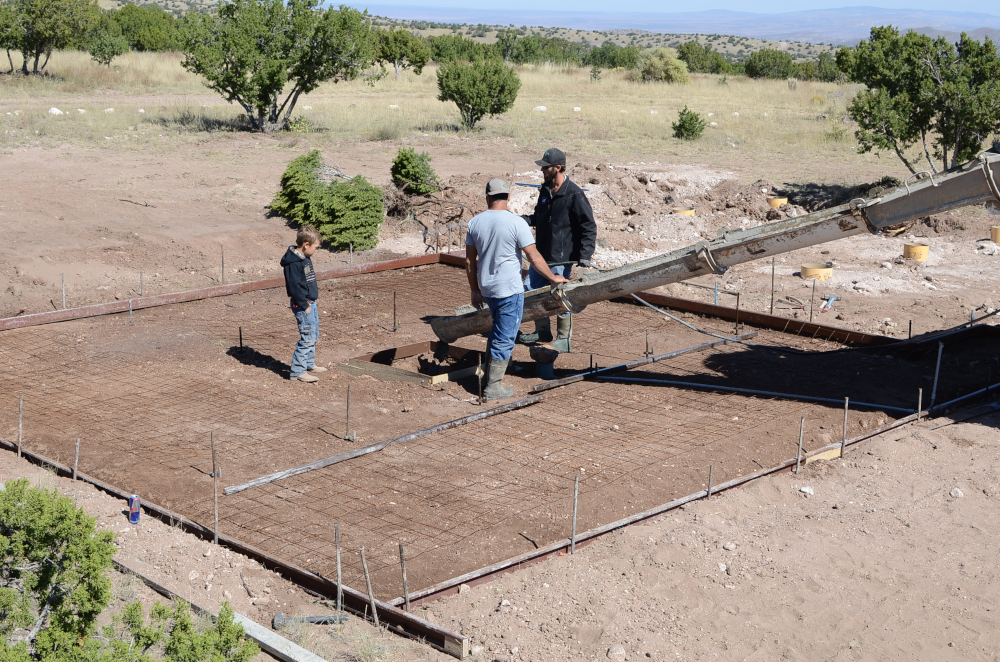
Forms ready, Tyler, his son Cash, and Tyler's concrete guy start the pour with the telescope footing, 3 feet deep and isolated from the rest of the slab to prevent vibrations in the slab from shaking the telescope.

While concrete guy trowels the wet concrete, busy Cash zipping here and there gets caught in the wire mesh and takes a tumble. Unflappable Tyler patiently keeps Cash out of trouble and Cash, out of school, learns a bit about the trade.
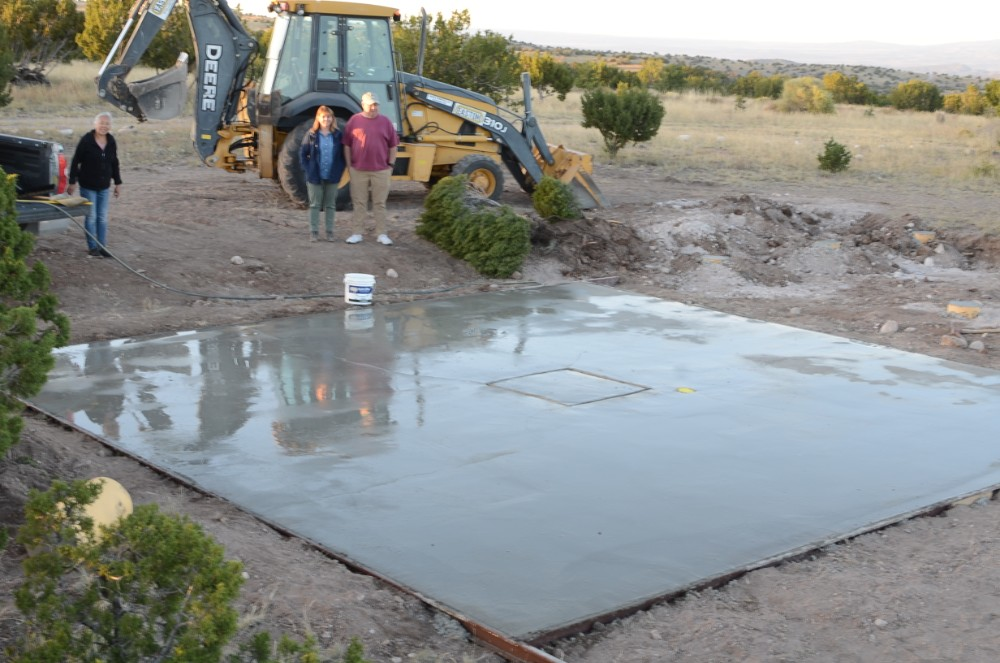
After the concrete was poured, it needed to cure; that is, we needed to keep it moist for a couple days. Water is precious and we don't have a well yet. So John Briggs generously supplied us with a tank of water to use from his well. Jih-Ying, Lori and Mark look on. (John introduced us to Mark and BYO, and Mark found the "dobservatory" on Cloudy Nights. Tyler's new backhoe also posed.
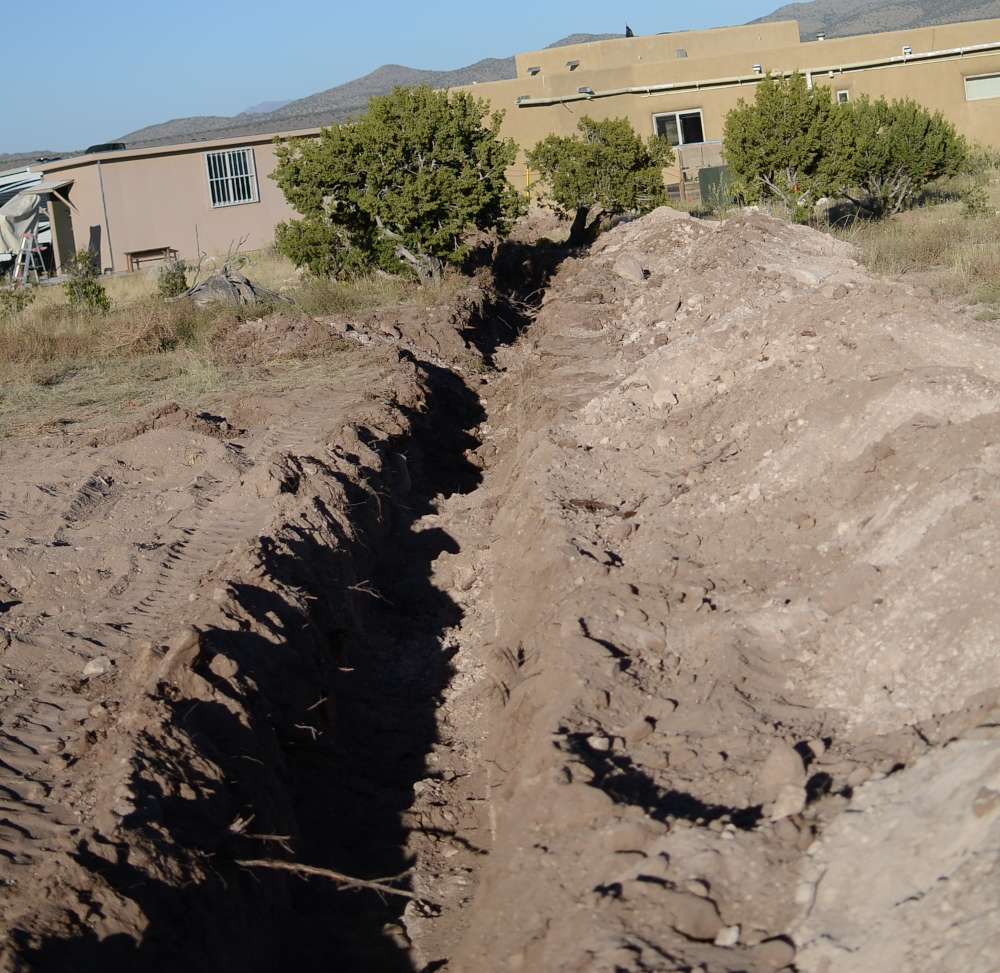
Tyler used his new backhoe to dig a trench so Danny and Barbara Sandoval could run electricity to the observatory.
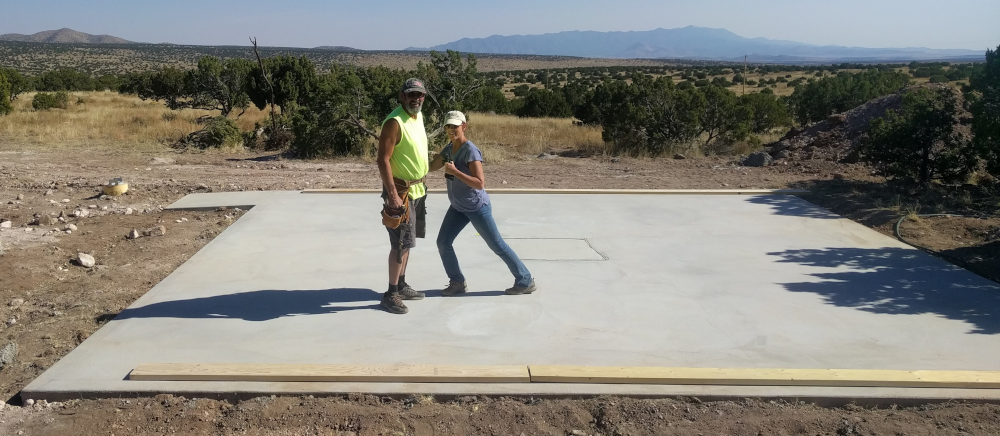
Scott and Diane rolled in Friday night, October 16, big black Mercedes van pulling their COVID bubble travel trailer. They had lumber and siding delivered ahead of their arrival and we able to get started the next morning.
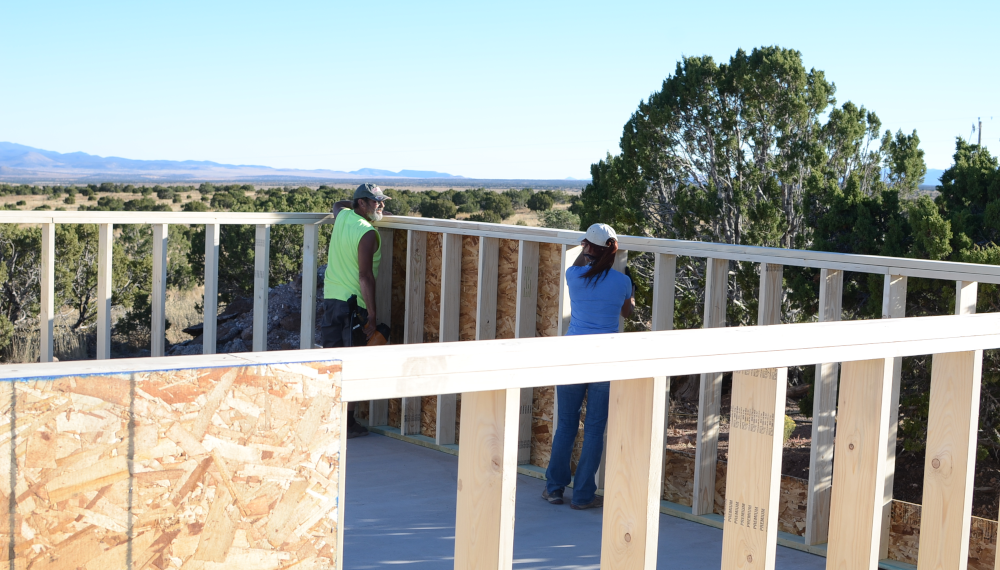
The five foot supporting walls go up first.
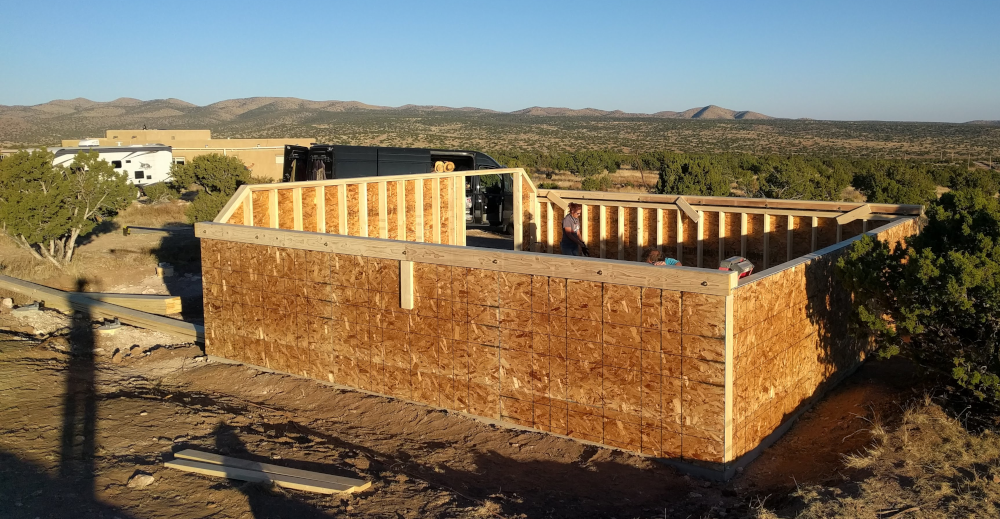
Working past sundown, walls are up and sheathing nailed on. Base for the roll-off roof positioned on rails (note extension to the left) and tacked down to keep from rolling off prematurely!
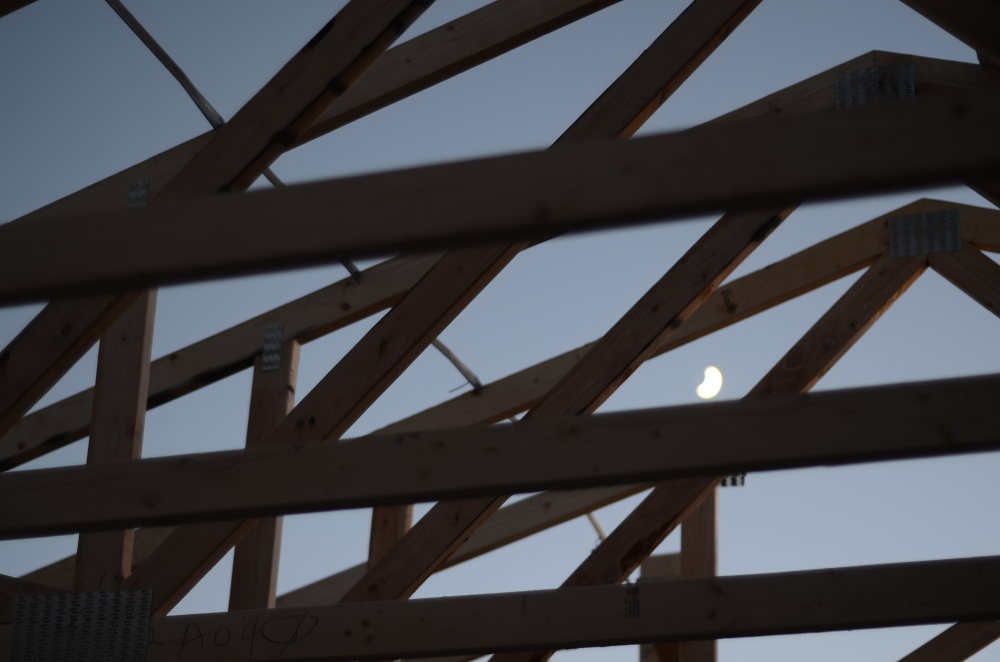
Scott and Diane, working just the two of them, installed and spaced the trusses with no more tools than a "Y" made from scrap 2x4's: inverting, lifting one end at a time and flipping. Cool.
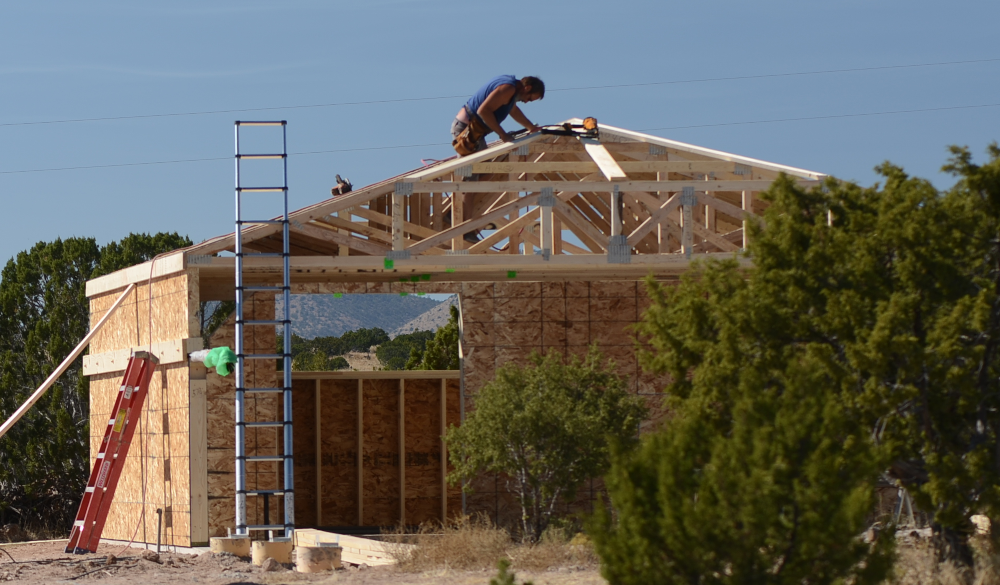
Scott and Diane formerly built houses. In order to give the observatory an extra degree or two horizon in the direction of the door wall, Scott came up with the idea of a partially hipped roof. "Partial" because the ends of the roof still need to span 24 feet without support from the walls.

Gantry up. Roof sheathing installed. The upper two feet of the side walls are part of the roll-off roof structure providing extra horizon to scopes mounted on a low axis and head room for humans at the same time. Sort of a hybrid between traditional roll-off roof and a roll-off building like Deep Sky West in Rowe. Opposite the door wall, facing roughly southwest, the upper two feet of wall fold inward.
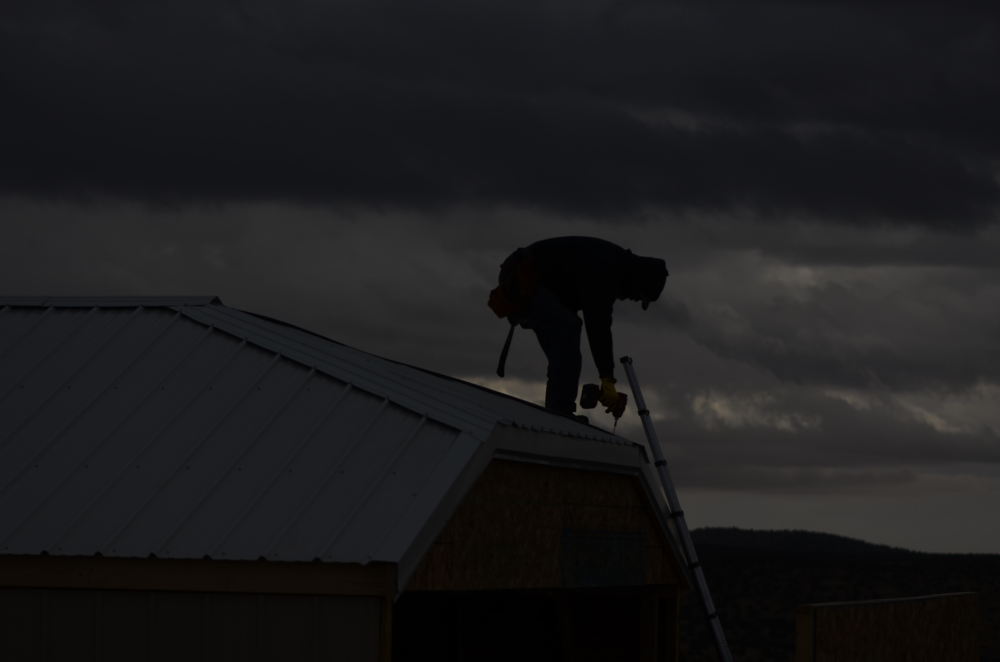
After applying a moisture barrier--sort of a synthetic tar paper--Scott applies a metal roof.
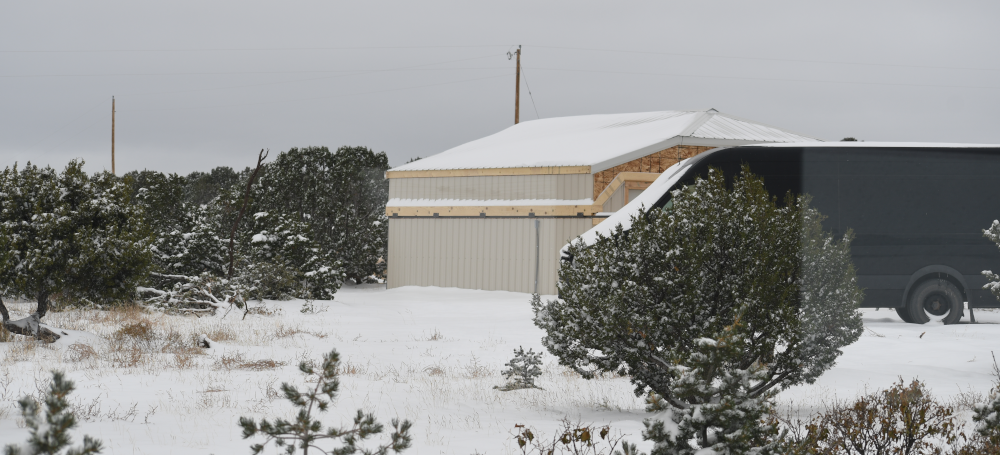
Just hours from completion, an early winter storm blew in. Much needed day of rest for the BYO crew.
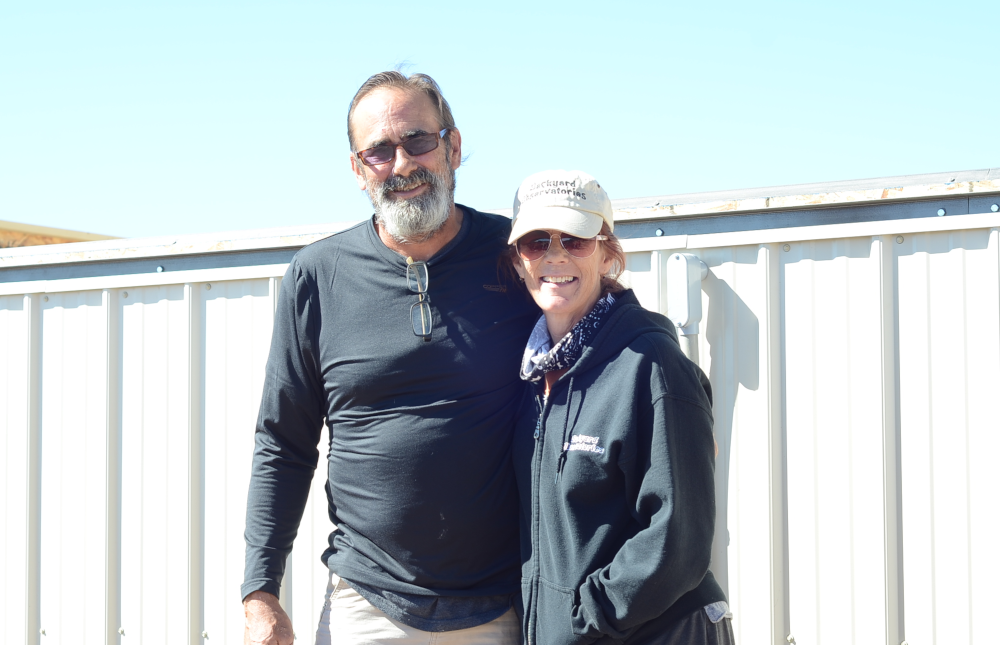
Sunshine returns, BYO finishes up, Scott and Diane head for their next job in Florida with a stop by Ohio to check up on family and pets.
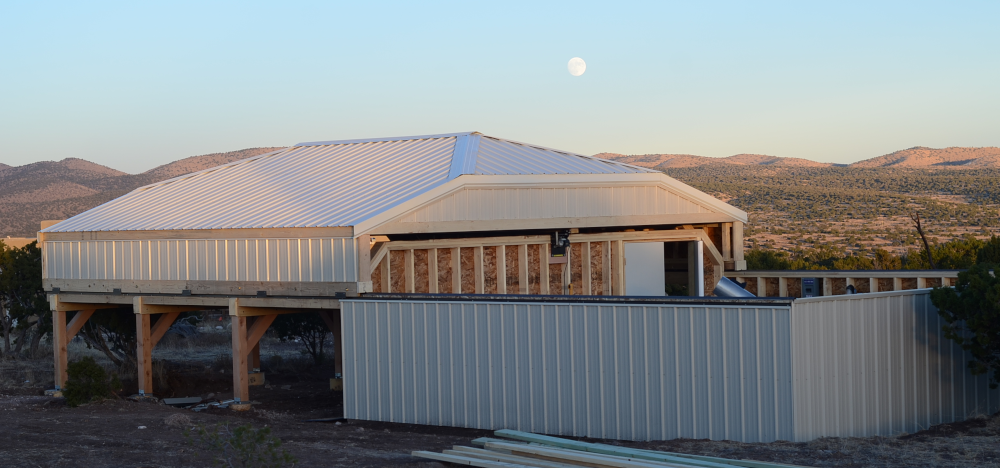
Evening, first day. It works!
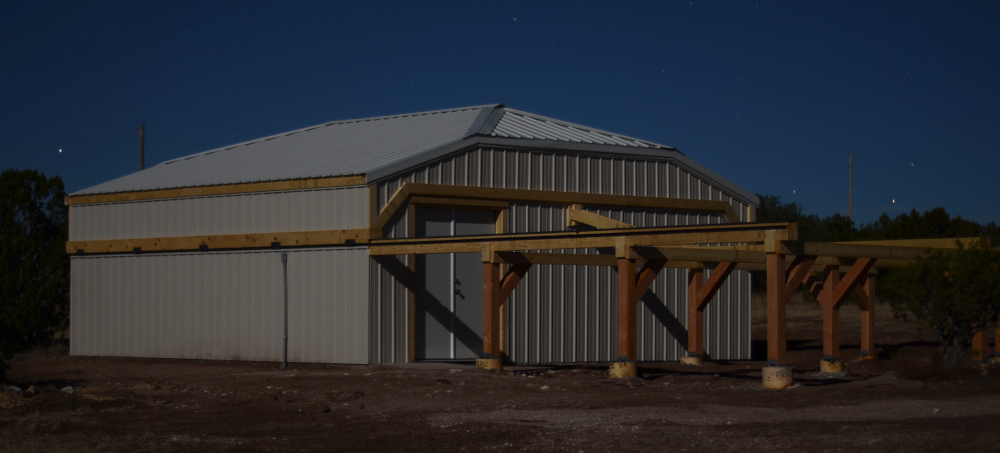
Under the stars and full moon.
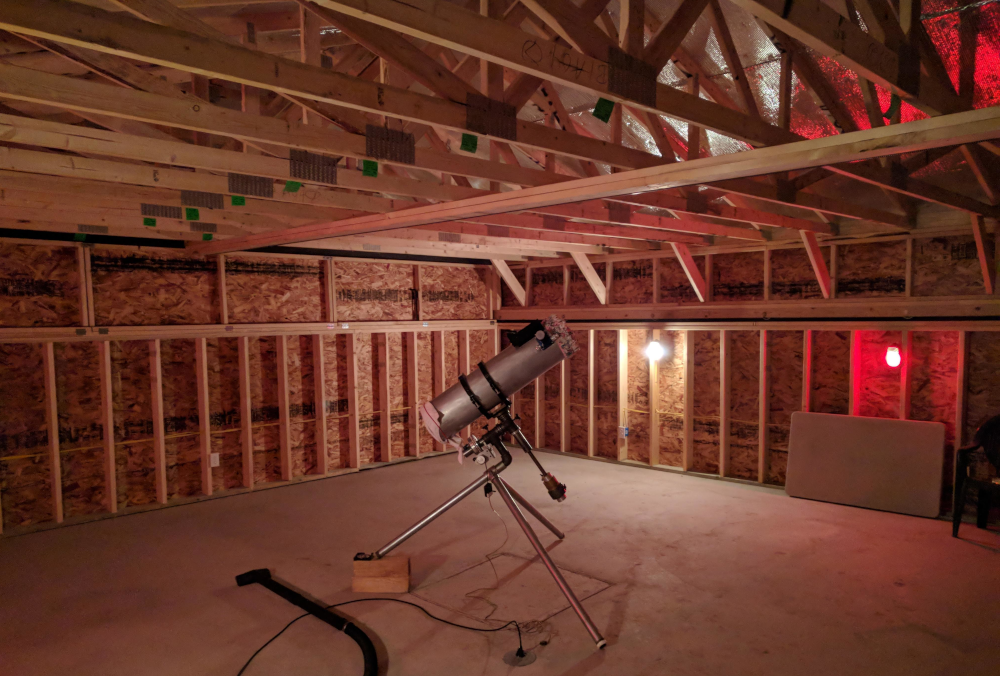
Inside the finished observatory. Wired separately for red and white light. Thanks to Mark's suggestions, power on the floor near the pier footing, radiant barrier on the roof underside. Fold-down wall is visible as well.
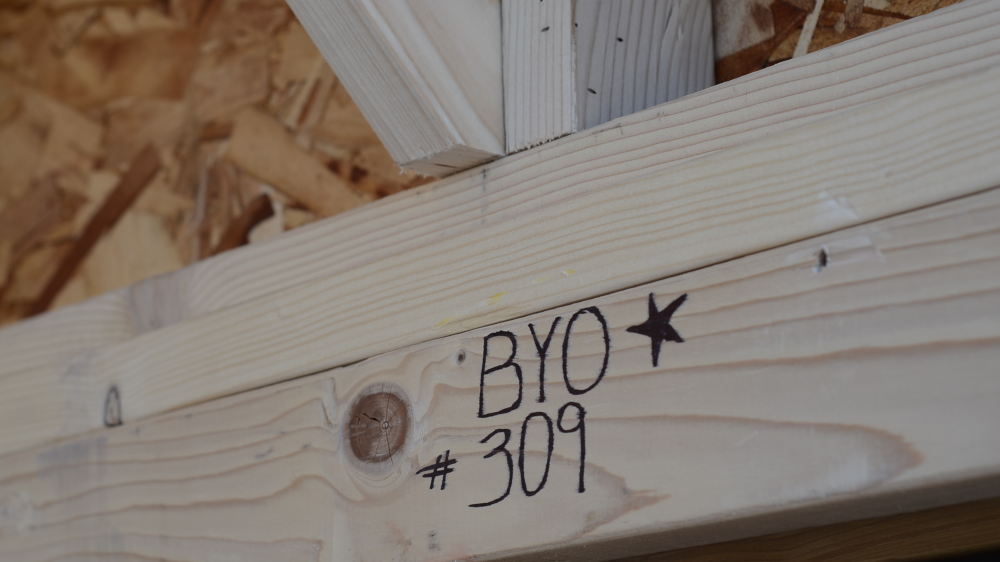
Signed and sealed. Backyard Observatories number 309. October 29, 2020.
posted at: 15:56 | path: | permanent link to this entry
